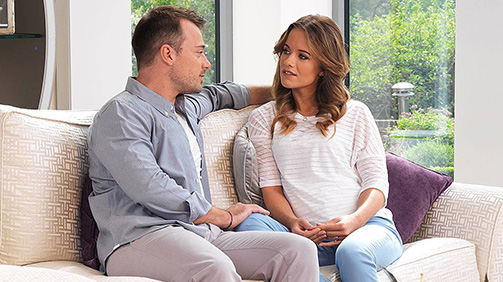The IONA test for trusted, accurate and responsible non-invasive prenatal screening
08th, Sep 2022

The IONA test is a non-invasive blood test, available at 3fivetwo Healthcare, for pregnant woman and diagnoses the probability of Down’s Syndrome, Edward's Syndrome and Patau’s Syndrome within the foetus. The IONA test will detect more than 99% of all Downs babies with very few false positives.
The IONA test is a non-invasive blood test, available at 3fivetwo Healthcare, for pregnant woman and diagnoses the probability of Down’s Syndrome, Edward's Syndrome and Patau’s Syndrome within the foetus. The IONA test will detect more than 99% of all Downs babies with very few false positives.
The benefits of the test are that it is quick, easy to understand and results are clear and accurate. The test is very safe and also offers the option to tell if the foetus is male or female.
The test works by taking a small sample of blood from 10 weeks pregnant. The blood sample is measured for DNA and calculates the amount of chromosomes 21, 18 and 13 – these are the chromosomes which relate to genetic issues such as Down’s Syndrome. The result of this calculation is then combined with the mother’s age to work out the probability of the fetus being affected.
When you get your results they will be reported as:
- Low risk – unlikely your pregnancy is affected by any issues.
- High risk – your pregnancy has increased risk and requires a follow up invasive procedure to confirm.
- No result – if there is insufficient DNA in your blood sample there will be no result and you may need a further blood sample.
Below are some of the most commonly asked questions around the IONA test.
How accurate is the IONA® test?
The IONA® test is accurate and identifies Down’s syndrome, Edwards’ syndrome and Patau’s syndrome in over 99% of cases.
What is the false positive rate?
Less than 1% of pregnant women may receive a high risk result from the IONA® test and then go onto to have a follow-up invasive test which confirms that the foetus is not affected with trisomy 21, 18 or 13.
How is the sample taken?
A simple blood sample is taken from your arm by a healthcare professional after you have been pregnant for at least 10 weeks.
What is the current method of screening?
Currently most healthcare systems offer pregnant women the combined test which includes a fetal ultrasound and blood test performed at about 11-13 weeks into your pregnancy. The ultrasound looks at multiple aspects of the developing fetus, but particularly at the skin fold at the top of the spine where it meets the skull, this is called the Nuchal Translucency (NT). The blood test measures the levels of two hormones: hCG and PAPP-A. The current combined test has a ~85% detection rate and ~5% false positive rate.
Is the IONA test replacing the 11-13 week dating scan?
No, it is recommended that you still have this dating scan at 11-13 weeks to assess the baby's growth and development. The IONA test or any other non-invasive prenatal DNA screening test will not replace this dating ultrasound.
Is the IONA test 100% conclusive?
It is not 100% conclusive due to naturally occurring biological instances where the fetal DNA differs from the placental DNA.
How long will it take to get the results?
Once the sample is received at the laboratory it can take between 3-5 working days to perform the test. The data from the laboratory test is entered into the IONA analysis software and an easy to interpret result report is generated and given to your healthcare professional such as a consultant or midwife.
What are my options if I have a high risk result for a trisomy?
If you get a “high risk” result, you will be contacted by your consultant or midwife. The next steps will be determined in consultation with your healthcare provider. All
MKT006 FAQ for Pregnant Women – Rev A
High risk results should be confirmed by a follow-up invasive procedure, such as amniocentesis or Chorionic Villus Sampling (CVS).
Can I have the IONA test if I have twins?
The IONA test is suitable for twin pregnancies. However, in dichorionic twins, the test sensitivity is reduced from >99% to about 95%. Dichorionic means there are two placentas, such as non-identical twins and some identical twins.
Watch this short video for an easy to understand overview of the IONA test.
The IONA test is now available from 3fivetwo Healthcare.
For more information, click here or call 0845 6006 352.
Recent Articles

